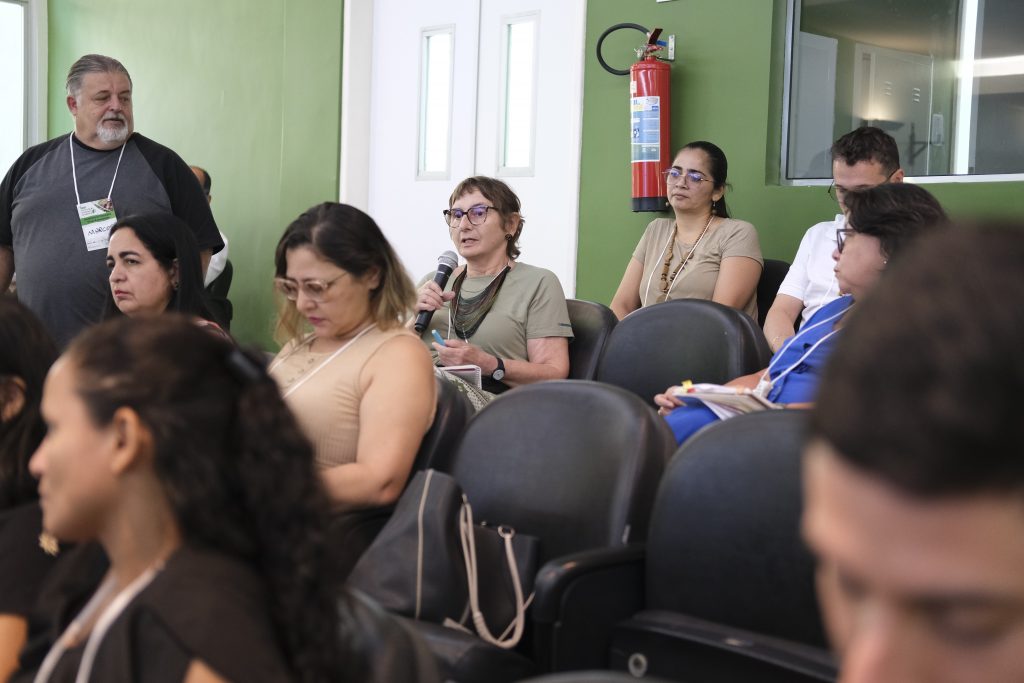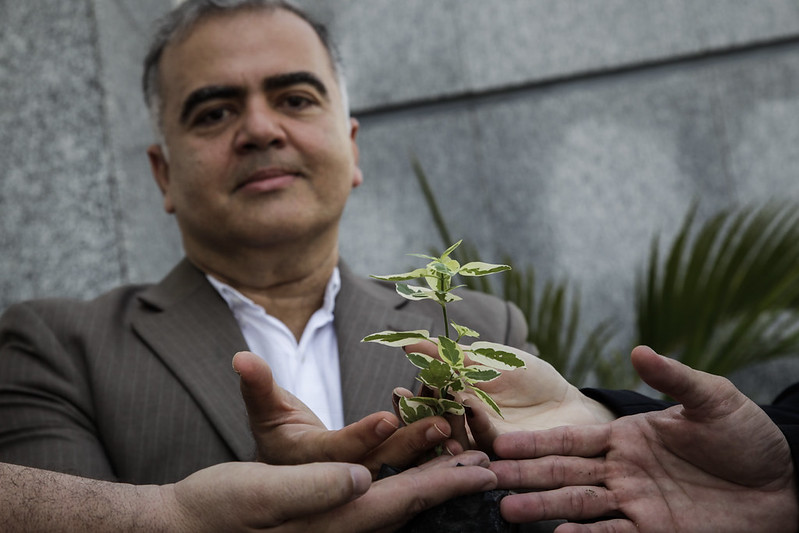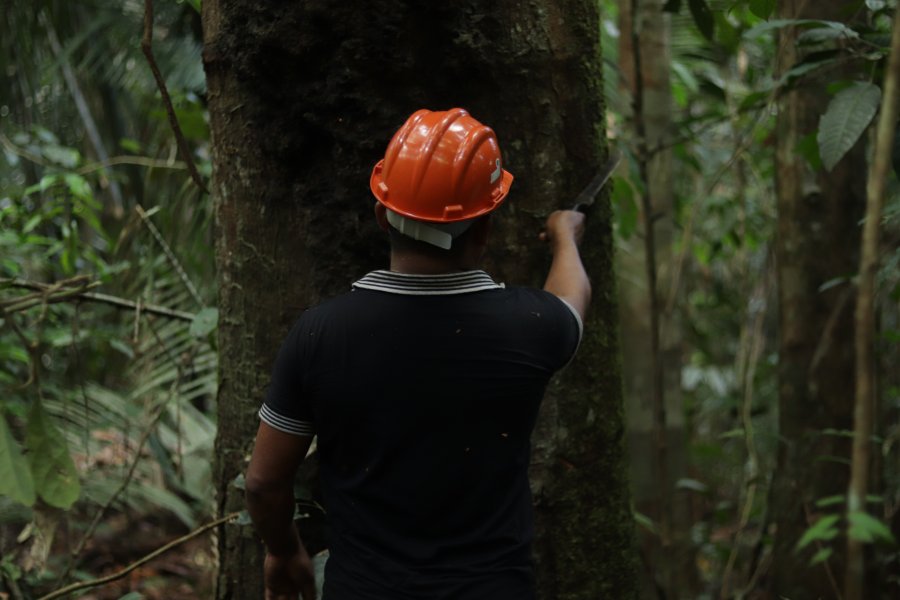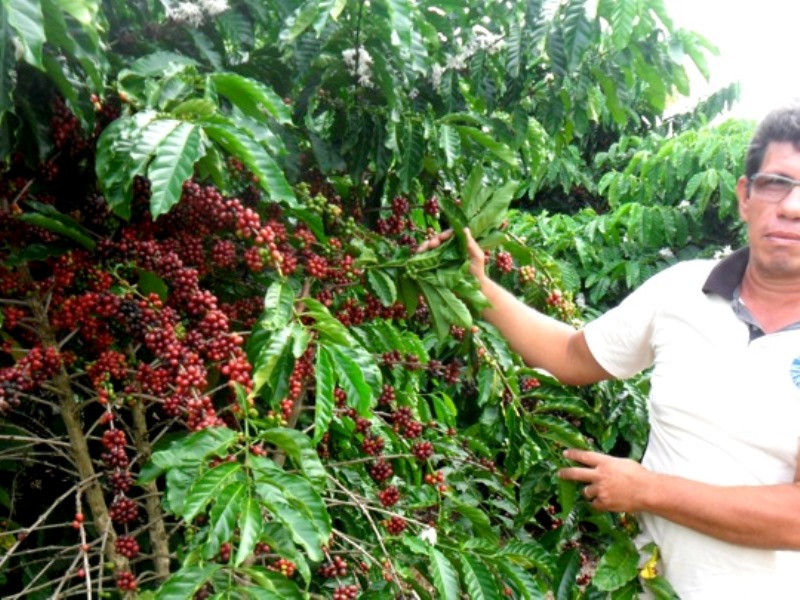BR-319 Observatory positioning note on the preliminary environmental permit of the middle stretch of highway BR-319
Photo: Orlando K. Jr – FAS
On July 28, 2022, the Brazilian Institute of the Environment and Renewable Natural Resources (Instituto Brasileiro do Meio Ambiente e dos Recursos Naturais Renováveis –IBAMA) issued Brazil’s National Department of Transport Infrastructure (Departamento Nacional de Infraestrutura de Transportes – DNIT) the Preliminary Environmental Permit for construction on the middle stretch of Highway BR-319, which runs from km 250 to km 655.7. The issuance of the permit, evidently electoral and clearly politically motivated, ignores essential stages of the licensing process, violating forest peoples’ rights and compromising significant pillars of democracy.
Given the importance of the topic, the BR-319 Observatory considers it necessary to emphasize some fundamental points so that the continuity of the licensing process follows the applicable laws, ensuring transparency, broad participation, and room for the interested parties to express themselves:
1. The Preliminary Environmental Permit cannot be issued yet because free, prior, and informed consultations, per Convention No. 169 of the International Labor Organization (ILO), were never held with the indigenous peoples and traditional communities who will be directly impacted by an infrastructure project of this magnitude. Brazil ratified this Convention through Legislative Decree No. 143 of June 20, 2002, entered into force in July 2003, and enacted by Decree No. 5041 of April 19, 2004. Upon being ratified and promulgated, Convention No. 169 of the ILO enters the Brazilian legal system as a supra-legal norm. It is also worth mentioning the understanding that even defends the overruling of its supra-legal nature due to its materially constitutional content, as added by former Justice Celso de Mello of the Federal Supreme Court in the judgment of the Direct Action for the Declaration of Unconstitutionality ( Ação Direta de Inconstitucionalidade – ADI) No. 3239, which makes the need for its strict observation even more relevant in critical environmental licensing processes, as is the case of the Highway BR-319 project. It must be noted that, even if the Convention mentioned above had not been incorporated into the domestic legal system, there is still a constitutional need to respect and observe the social organization of indigenous peoples and the right to territory enshrined in the terms of Article 231 of Brazil’s Federal Constitution of 1988, which represent these peoples’ rights to have their social organization, customs, languages, creeds and traditions recognized, as well as their original rights to the lands they traditionally occupy, and from which all other rights derive, including the right to prior, free, and informed consultation. Finally, it should be stressed that the need for prior consultation is not even limited to the environmental licensing procedure. Under the terms of Article 6 of ILO Convention No. 169, consultation is necessary in the face of any administrative action (as is the case of the environmental licensing process) or legislation that may impact the peoples concerned.
2. Moreover, it must be made clear that the DNIT and the National Indian Foundation (Fundação Nacional do Índio – FUNAI) only made presentations on the Indigenous Component of the Environmental Impact Assessment (Componente Indígena do Estudo de Impacto Ambiental – CI-EIA) for communities in the Apurinã, Mura, and Parintintin territories. Those presentations done at meetings should not be considered a consultation, as they only fulfilled an informational procedure inherent to the procedures of the Indigenous Component Assessment. These spaces for dialogue are not public hearings either and cannot be confused with free, prior, and informed consultation, the regulations of which are even given by different norms and have different purposes. While the EIA presentations aim only to protect the rights to participation and information, a prior, free, and informed consultation is related to the right to self-determination itself, with its own procedure, the direct participation of interested indigenous peoples, and in line with the consultation model proposed by the communities. The participation of the interested body in the result of the consultation, in itself, already tarnishes the procedure’s “free” character since it holds a position of interest in a specific result.
3. Concerning public hearings, in the first place, the communities had no prior access to the relevant documents, nor were they in an accessible language. Secondly, the format of the hearings did not allow, and even complicated, the participation of residents from all communities involved in the process. Third, how the results of the hearings were incorporated into the Environmental Impact Assessment and Environmental Impact Report (Estudo de Impacto Ambiental e Relatório de Impacto Ambiental – EIA/RIMA) was not disclosed, much less into the Indigenous Component.
Read the full note here www.observatoriobr319.org.br






Leave a Reply